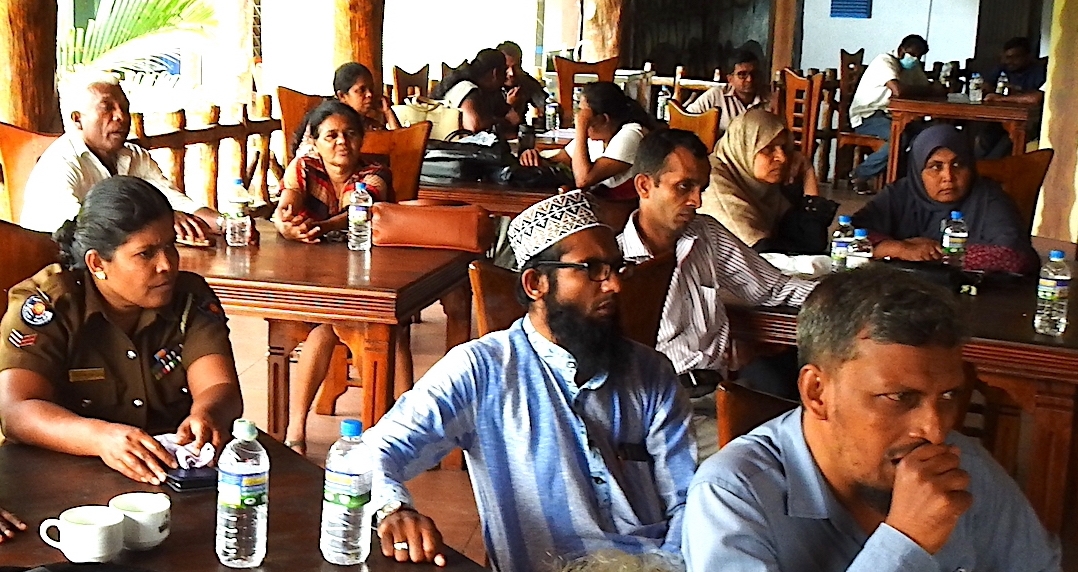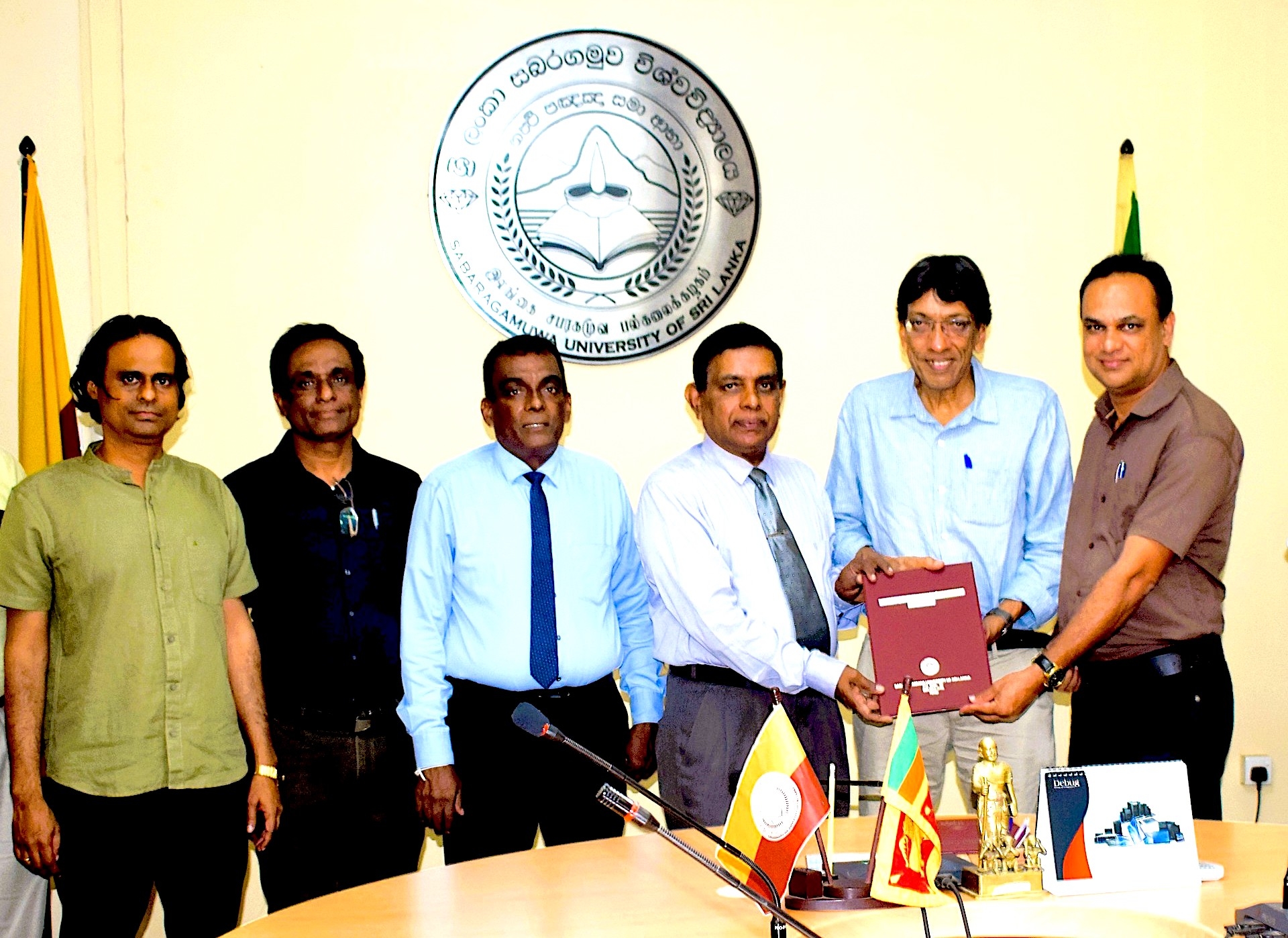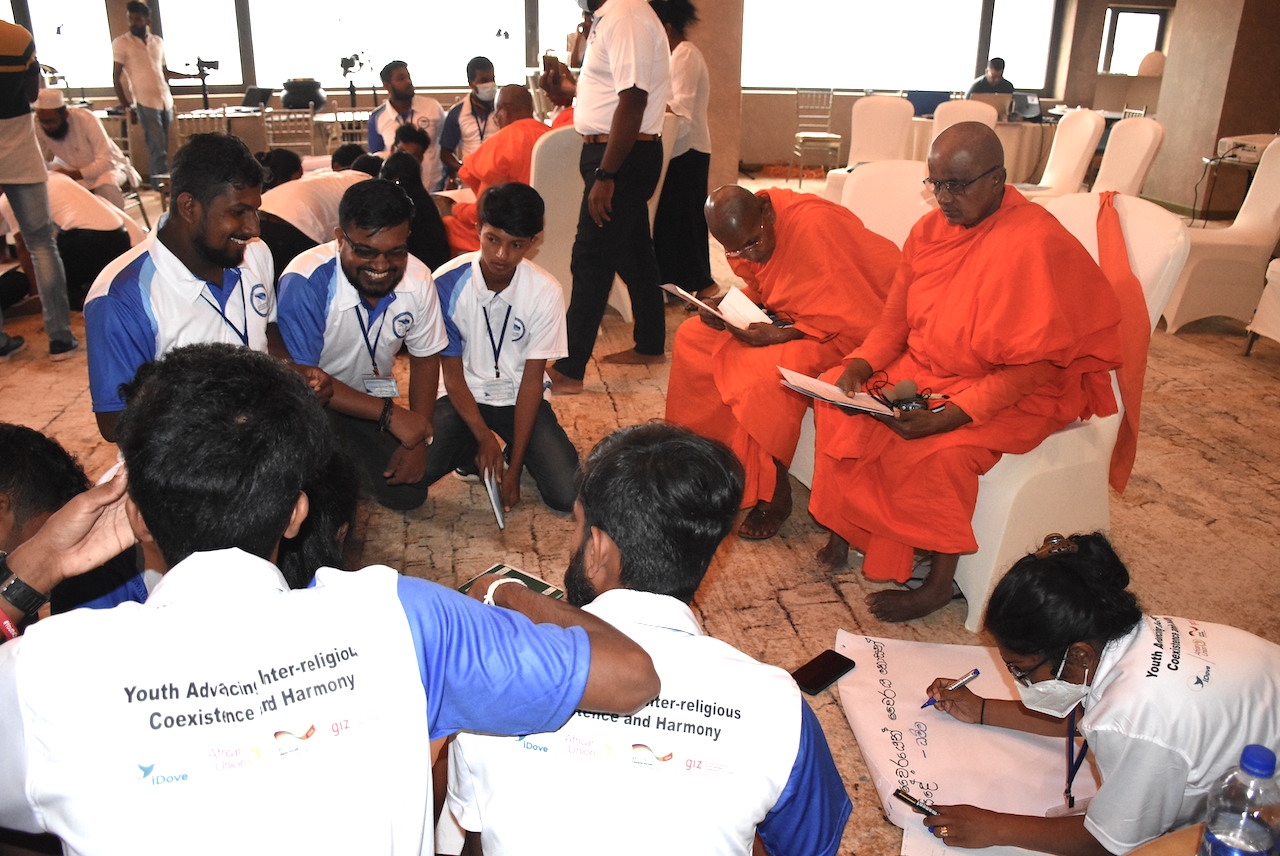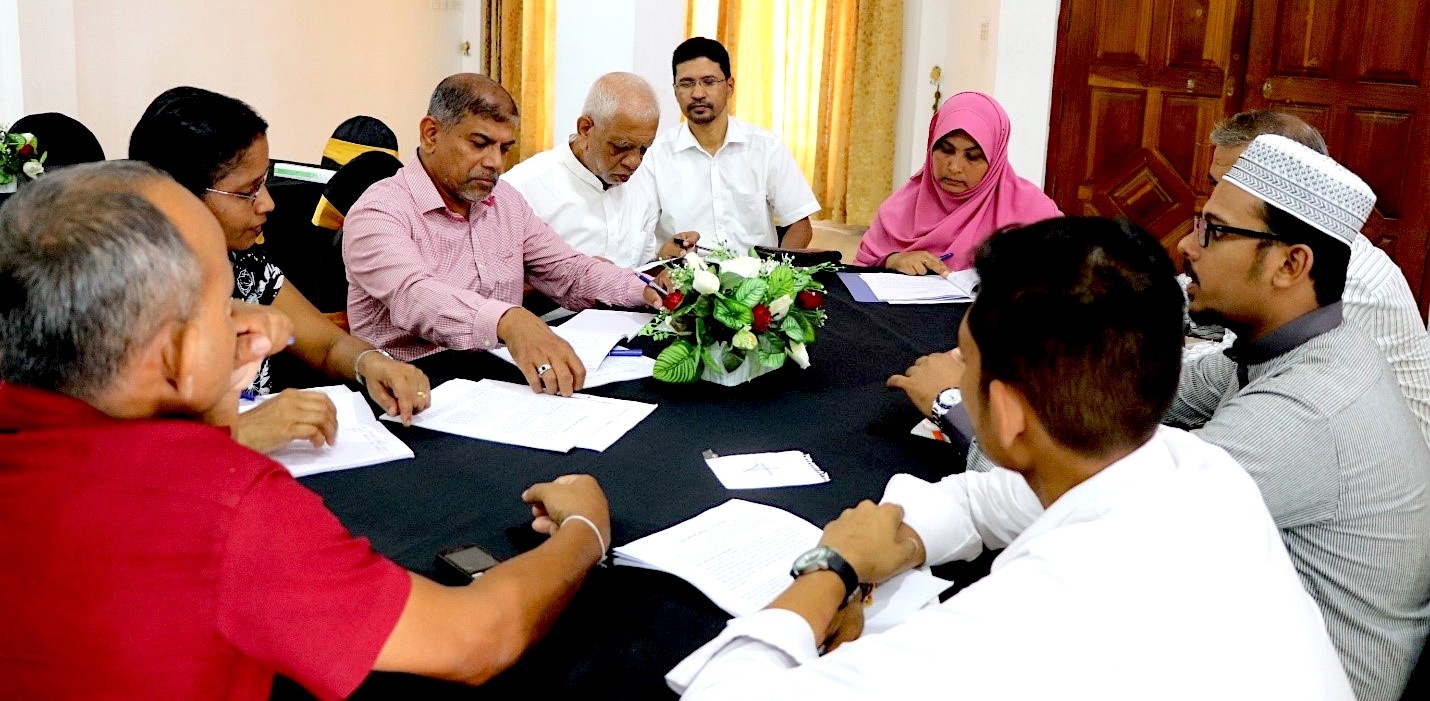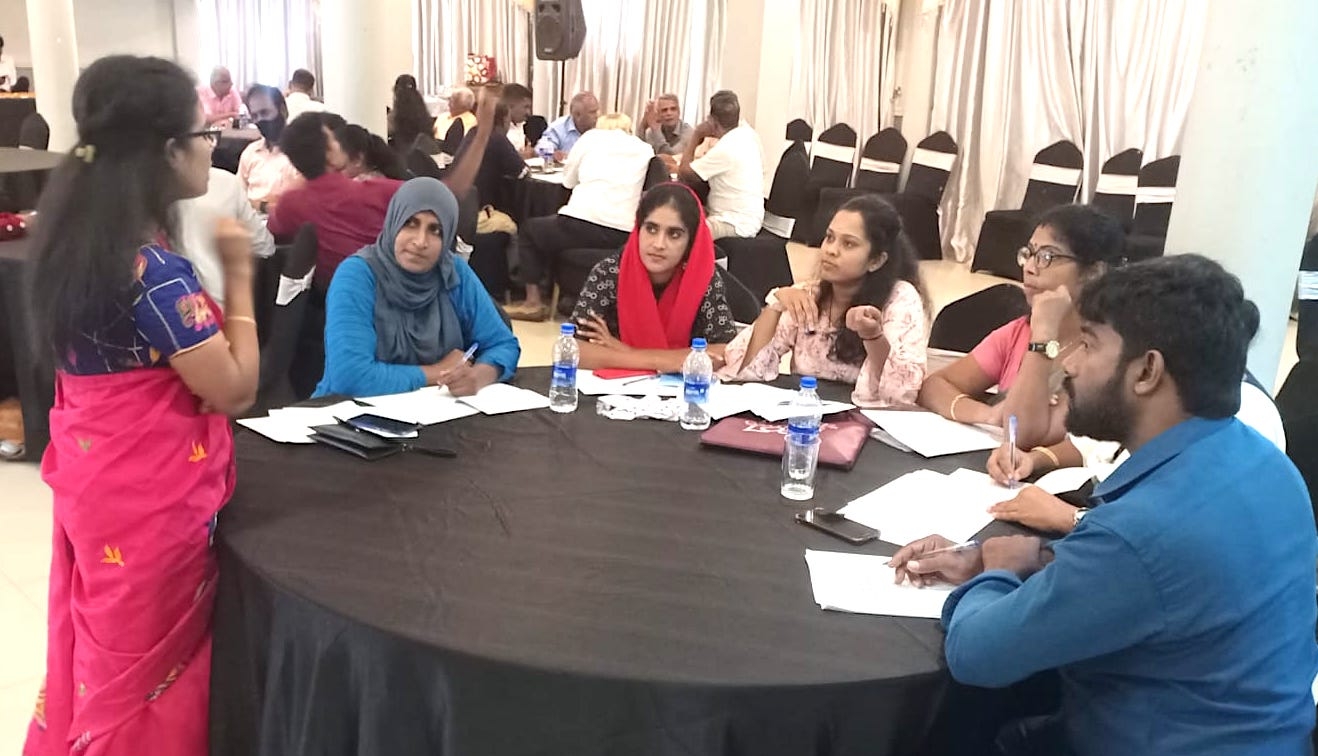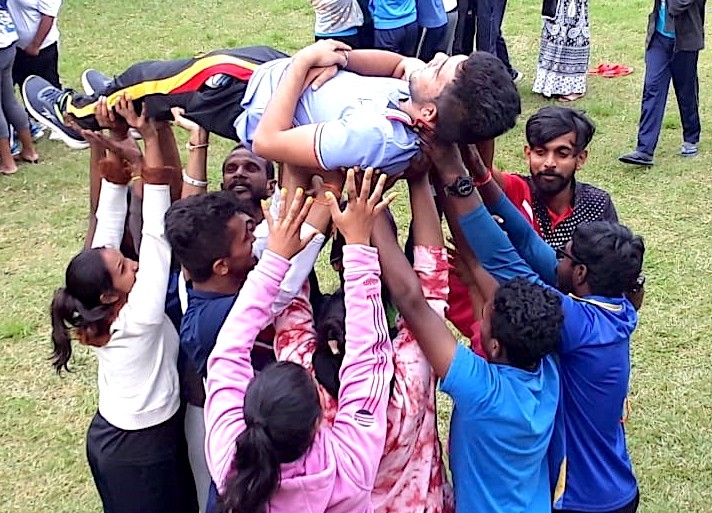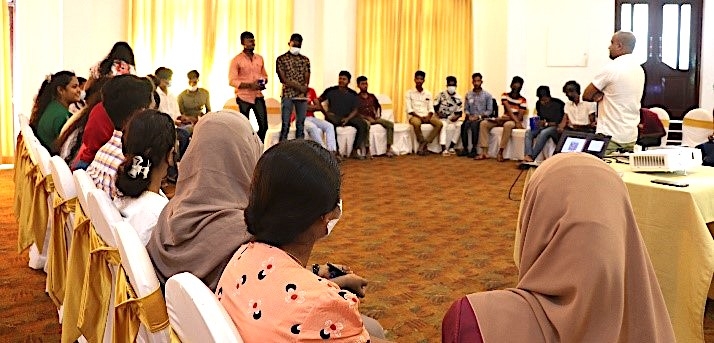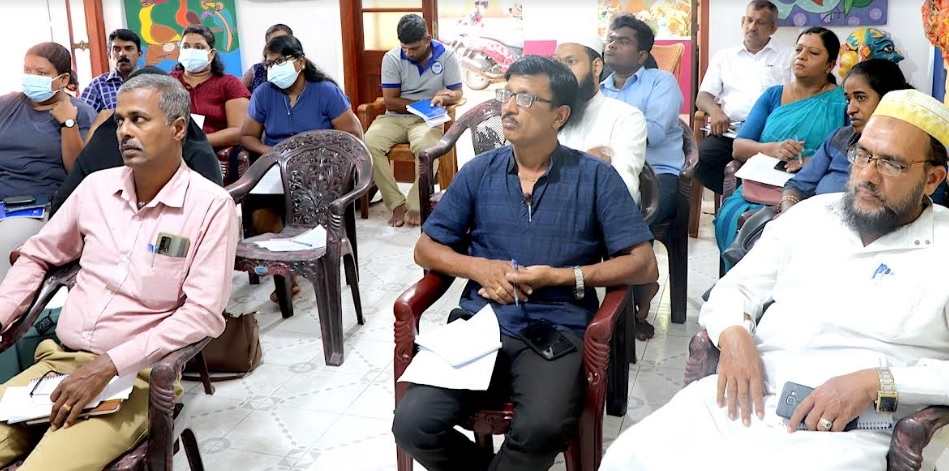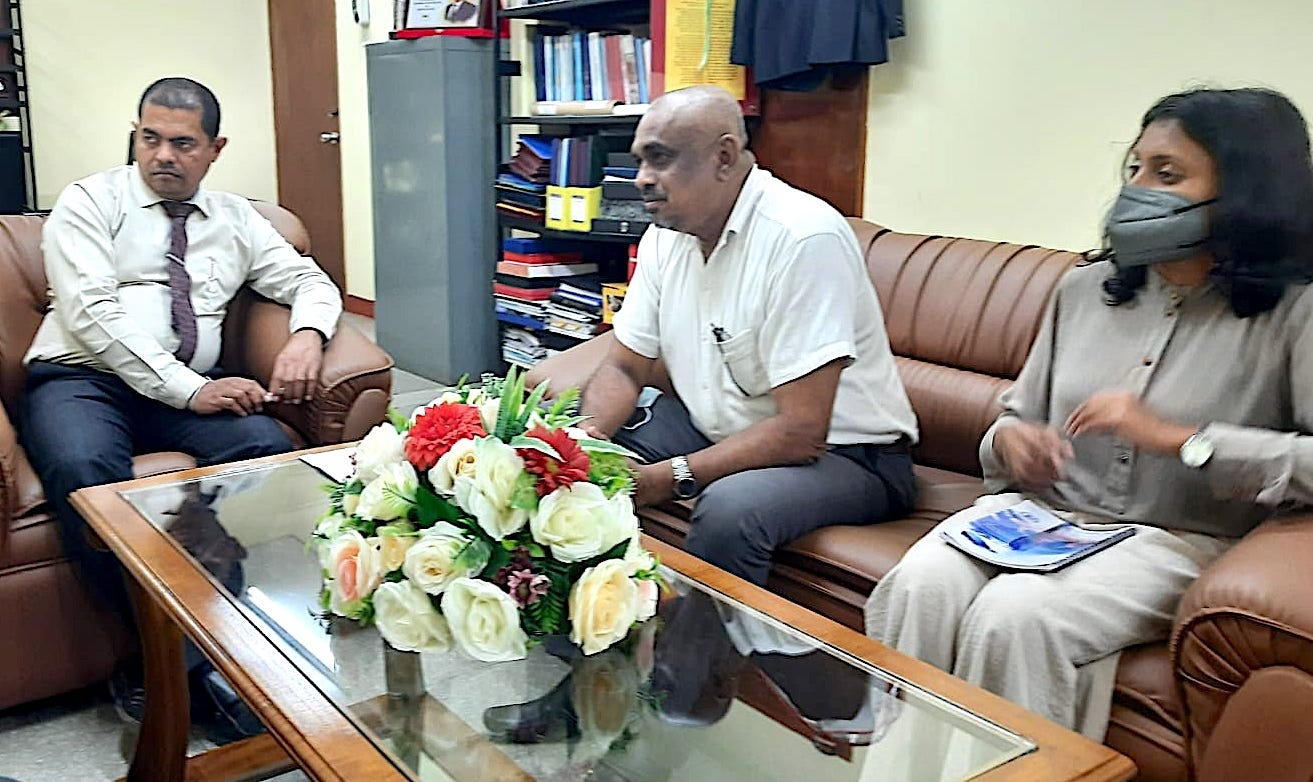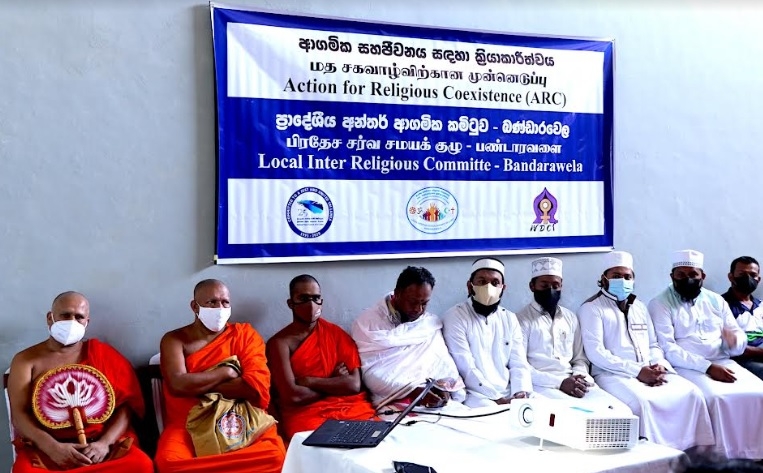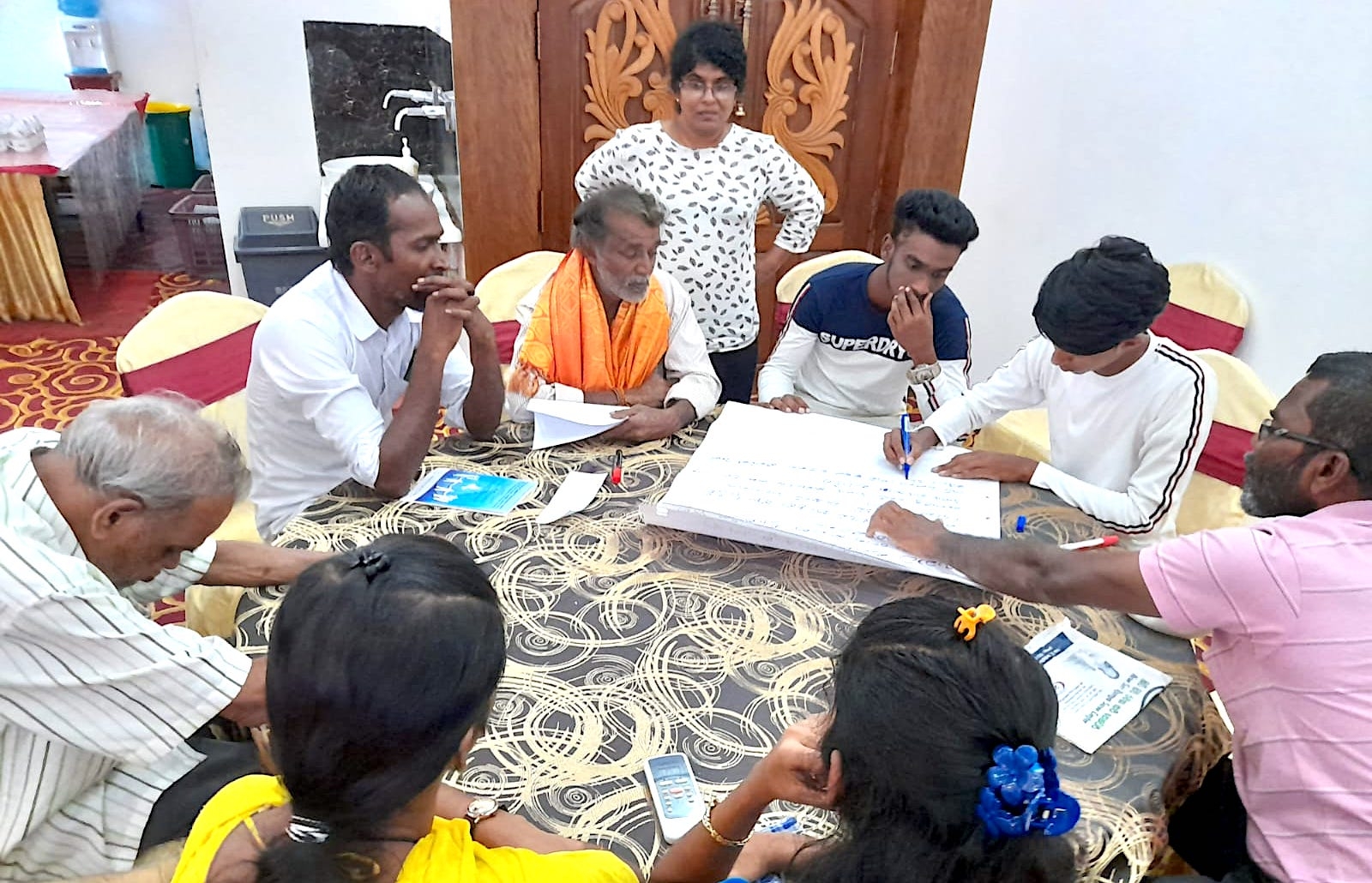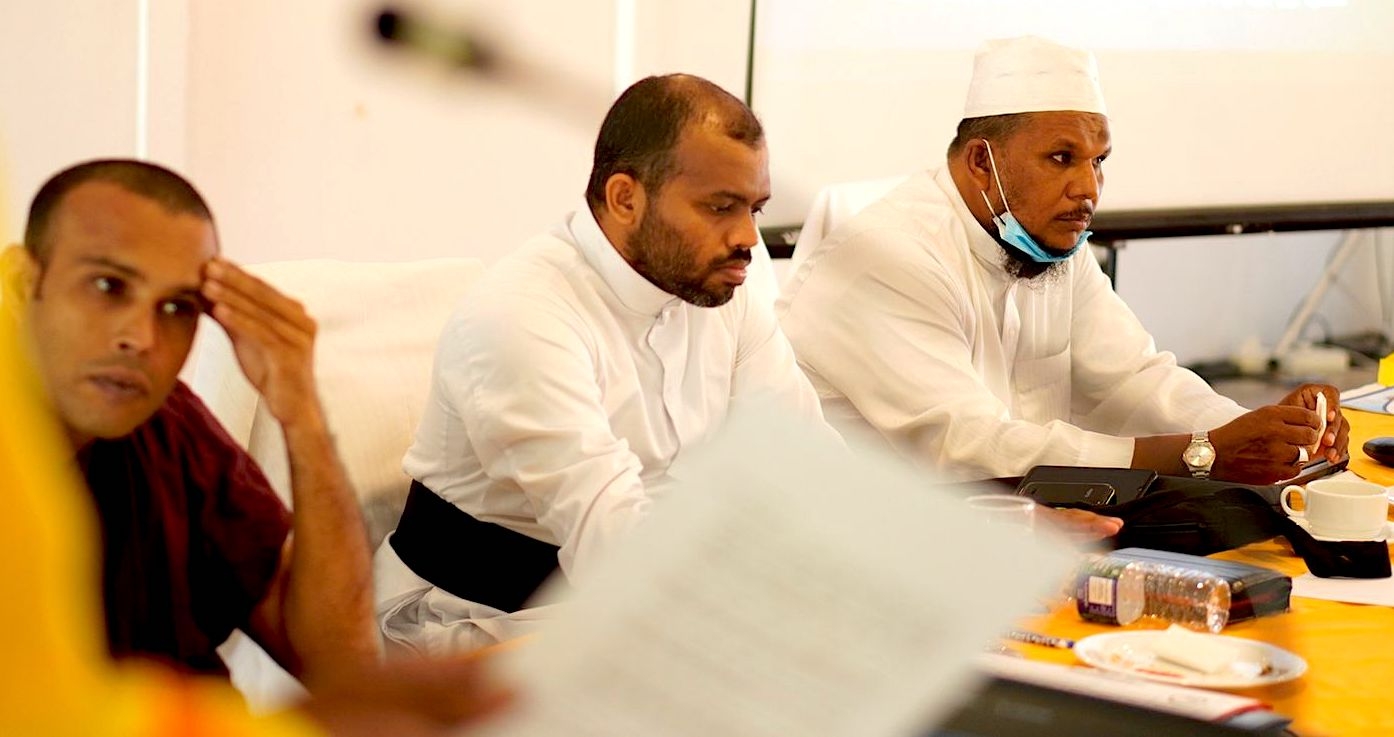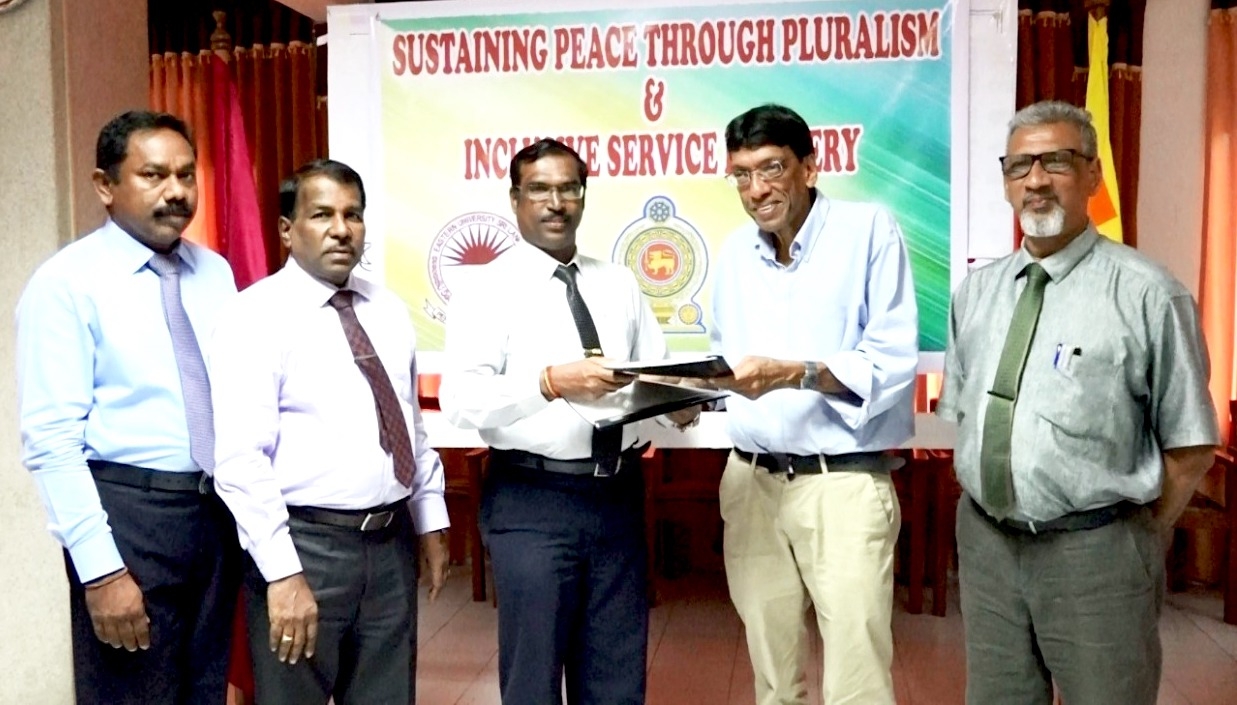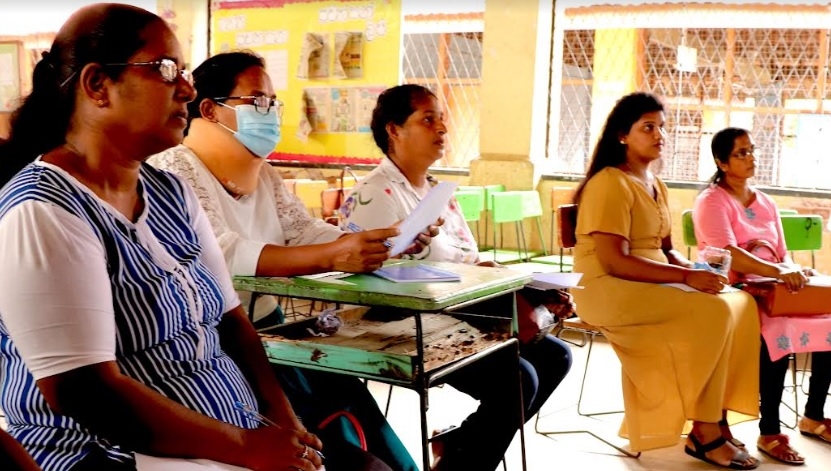Religious conflicts in Sri Lanka have seen a steady increase with extremist parties spreading misconceptions to create divisions among communities to gain political advantages. Community leaders, religious leaders and state officials have a greater responsibility in mitigating existing conflict stressors to strengthen unity in their areas. In sustaining religious freedom within the framework of pluralism and the rule of law, it is necessary to empower these community leaders to carry out citizen driven initiatives. Carrying out need assessments for Local Inter Religious Committees (LIRCs) was a crucial effort that was taken by NPC’s Action for Religious Coexistence (ARC) team to identify the needs of areas subjected to recent religious conflicts.
News
NPC signed an agreement with the Sabaragamuwa University to establish an advanced certificate course on sustainable peace through inclusive services delivery. An agreement with the Eastern University has already been signed for the course under the Freedom House project on pluralism and inclusive service delivery.
Since the end of the civil war, hate narratives and extremist ideologies spread by nationalistic groups and politicians have gradually changed the mindset of citizens to suspect other ethno religious groups. Trust among communities had been lost and furthered eroded by the Easter Sunday attacks, undermining religious coexistence. The tendency of youth to accept hate narratives has grown in recent years as a result of social media.
NPC’s Action for Religious Coexistence (ARC) project conducted 17 activities reaching 569 youth wing members and 123 Local Inter Religious Committee (LIRC) members in 11 locations. These activities, which include capacitation and engagement interventions, were successful in terms of participation and impact. The feedback received from participants proves that ARC managed to ensure the quality of activities encouraging them to take the initiative to strengthen rule of law in the country.
NPC will begin a new project to improve the knowledge and capacities of the Office on Missing Persons (OMP) staff funded by the Canada Fund for Local Initiatives (CLFI) with a goal to improving accountability in Sri Lanka.
A workshop on pluralism and conflict transformation was held in Jaffna for 27 members of the sub committees of District Inter Religious Committees (DIRCs) in Jaffna, Vavuniya and Batticaloa under NPC’s project Plural Action for Conflict Transformation project (PACT). The sub committees were set up in areas prone to religious and ethnic tension so that conflict could be avoided and handled through dialogue and cooperation.
A NPC team visited Sabaragamuwa University to assess the progress of its forthcoming project on inclusive service delivery. NPC is planning to offer an advanced certificate course on sustainable peace through inclusive service delivery at the Ruhuna, Sabaragamuwa, Jaffna and Eastern universities as a part of a Freedom House funded project, Pluralism and Inclusive Service Delivery.
Three programmes on pluralism to provide knowledge, skills and attitudes to recognize the pluralistic nature of the society were carried out targeting 137 youth wing members in Beruwala, Vavuniya and Trincomalee under NPC’s Action for Religious Coexistence (ARC) project.
A Language Audit Training for the Batticaloa District was held for 20 religious leaders, Local Inter Religious Committee (LIRC) members, youth and community leaders under NPC’s Language to Reconciliation (L2R) project in collaboration with its partner, Butterfly Peace Garden.
A NPC team visited Sabaragamuwa University to assess the progress of its forthcoming project on inclusive service delivery. NPC is planning to offer an advanced certificate course on sustainable peace through inclusive service delivery at the Ruhuna, Sabaragamuwa, Jaffna and Eastern universities as a part of a Freedom House funded project, Pluralism and Inclusive Service Delivery.
Under its Action for Religious Coexistence (ARC) project, NPC held eight training programmes on pluralism targetting 50 Local Inter Religious Committee (LIRCs) members and 373 Youth Wing members to encourage community leaders to promote pluralism and social responsibility for ensuring religious freedom.
A workshop on understanding language rights and language policies was held in the Gampaha District for government officials, journalists, religious leaders, community police officers, community organisations and Local Inter Religious Committee (LIRC) members under NPC’s Language to Reconciliation (L2R) project funded by the Canadian government.
Under NPC’s Plural Action for Conflict Transformation (PACT) project, meetings to discuss economic discrimination, points of conflict and tension in relation to shared resources were conducted for District Inter Religious Committee (DIRCs) members in the Matara, Badulla, Anuradhapura, Nuwara Eliya, Galle, Ratnapura, Kandy and Batticaloa districts.
DIRC members were able to identify if someone running a business had faced discrimination when obtaining services and materials or when manufacturing or selling products and goods because of his or her caste, class, religion or ethnicity in each district in the forms of killing, threatening, warning not to buy or sell products and goods or damaging or destroying property based by extremism, politics, hate speech, false stories and myths. Participants discussed the negative impact of discrimination on individuals and the economy and how it affected ethnic and religious harmony and development of the country.
Fifty representatives from the Ampara, Batticaloa, Kandy, Kurunegala, Vavuniya and Mannar districts took part in an inter district review meeting to mark the end of NPC’s 30-month Prevention of Violent Extremism (PVE) project.
NPC is collaborating with the Eastern University of Sri Lanka (EUSL) to hold a certificate course on sustainable peace through inclusive services delivery. NPC will offer the same course with the universities of Ruhuna, Sabaragamuwa and Jaffna under the Freedom House funded project, Pluralism and Inclusive Service Delivery.
The issue of language was a key dividing factor in the early years of Sri Lanka’s independence and one of the root causes of the ethnic conflict that escalated into a 30 year internal war, and continues to be a great divider.

